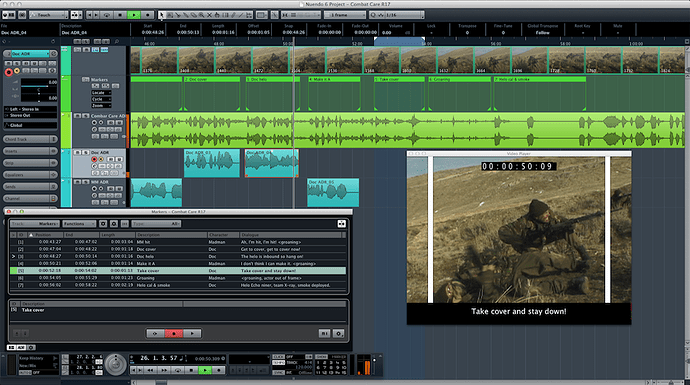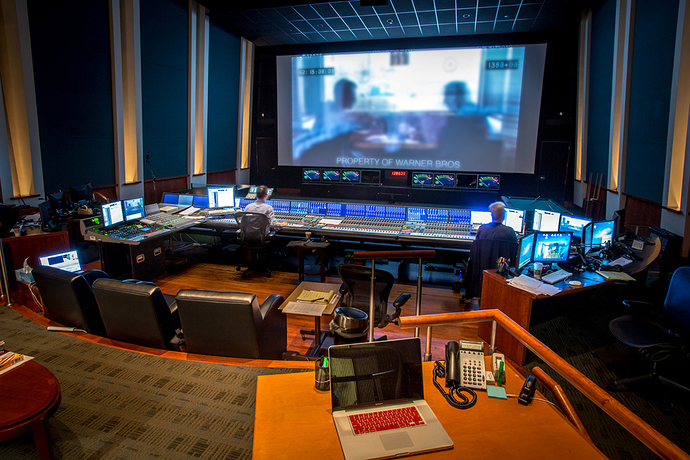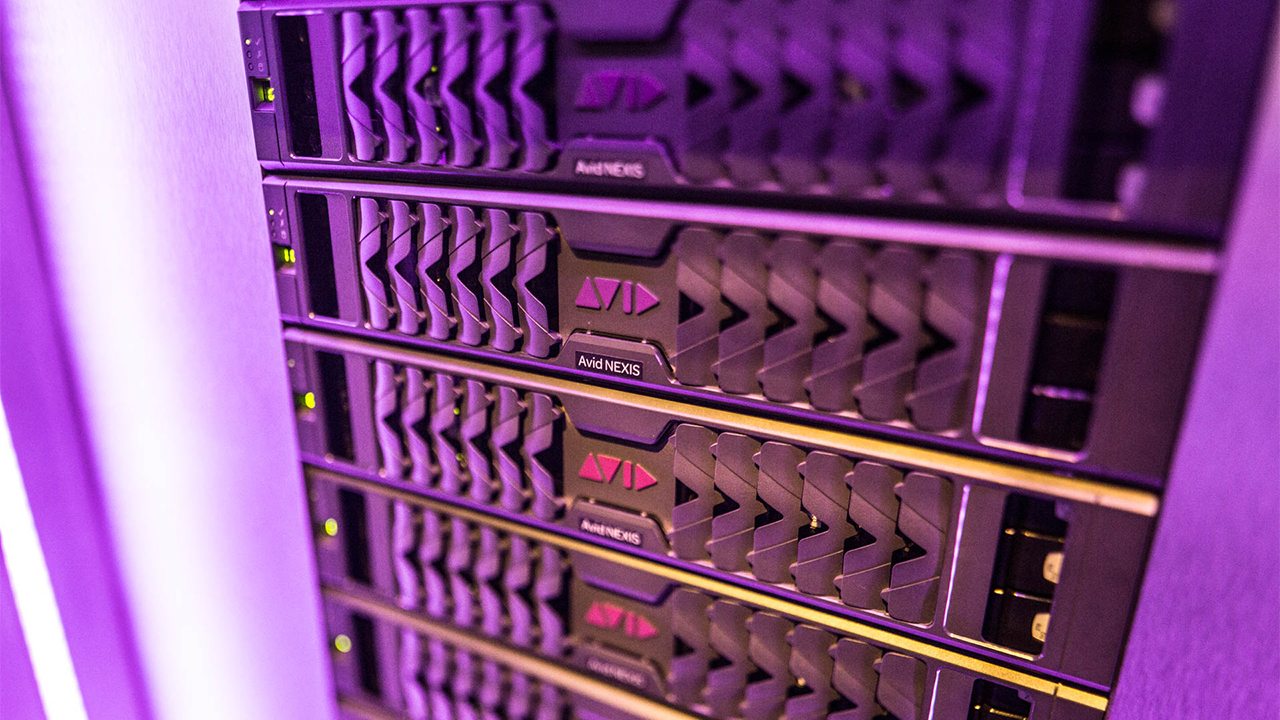Cool, I’ll look at PT as well! So much has changed since the last time I looked at DAWs, I hadn’t even heard of Mixcraft. Good suggestions guys thanks.
I first learned on Pro Tools in college, and got an inexpensive version with an academic license, but once I upgraded my interface it didn’t work anymore and I looked into alternatives. First I tried FL Studio, because I already had it. It’s cool! Depending on what sort of music you make. Since I do mostly recorded stuff with some MIDI and almost no loops, it wasn’t ideal for me.
Now I use REAPER. I love it! It’s cheap and I find the workflow to be easy enough. I watched a series of video tutorials by “Kenny G” which were fantastic for giving me an overview. I’ve been too lazy to completely customize it to my liking, but at least I know I have the option, haha.
I use cubase and after I’d invested so much time and money into buying/learning it, am not in any hurry to change but… if I were starting again, I would absolutely choose Reaper.
I just now pulled up a childrens music project (target age 2-4 yrs old) that came in tonight from a New York based puppet company. As I started working on it, I just remembered that Cubase has arrangement features that Logic and PT don’t. There is a feature in Cubase that allows you to punch in chords in real time, and the DAW analyzes them and notates the chord progression in real time. I was just sitting here (in Logic) wishing I had this to work with. There’s also a think where you can cue different chunks of the song in succession. I retract the statement about Cubase having virtually no advantage over ProTools.
I worked with Cubase, Logic, Pro Tools. Now I prefer Reaper for mixing.
+1 for Reaper as well!
Workflow for editing, mixing, producing… is very efficient and is more or less brainless since it was designed with that in mind.
Lot of updates and new features very often, widely open on various formats (DDP export for instance).
Very flexible about your computer (Mac, PC, Linux, 32/64 bit, VST 2/3, AU, price, many updates, software protection…)
On the other side, menus (and sub-menus and sub-sub…) are longer then life, plugins UI are ugly, no synth or sampler, integrated reverb is a joke, no real integrated autotune-like tool, lot of options on the right-click menu, preference window is even longer than menus…
When working with loops or doing live performance, Live and FL Studio (Bitwig?) are better.
When writing songs with powerful synths, nice romplers, full pianos and so on, Cubase, Logic, PT… are better.
So here is my $0.02 
I think some of the Magix DAWs have Melodyne too. Have to check.
It so happens that Mixcraft Pro Studio 8 (the latest version with all bells and whistles) is on Black Friday blowout for $99 at the moment. That is a pretty amazing price for all this baby does…
https://www.acoustica.com/mixcraft/buy-mixcraft-pro-studio.php
I came from mainly a cubase background so it was easy moving to Studio One (created by ex cubase employee’s). I did that because X2 and cubase 7.5 were too unstable.
Never looked back.
Kind of overview
Reaper. It’s cost effective, extremely versatile, leaves a tiny fingerprint on your CPU, everything works with it easily, and it’s damn near open-source. They are constantly on top of upgrades and new features. And if you’re so cheap that you just can’t spring for the 60 dollar license, then the trial version is fully functional and never expires. Reaper is the best DAW going.
Pro Tools is good for two specific reasons:
- Dumb potential clients see “Pro Tools” and think it means pro results.
- It’s very good if you just want to be able to say “I use Pro Tools”.
No rush though, it’s not like it’s going to stop working or anything, if it does everything you need you could be good until it won’t run because of OS changes.
Yeah that’s true, I could probably get years out of it as long as I avoid updates. I’m not sure what I would do in the event of a hard drive failure or needing to reinstall for any reason since this was a download and I don’t have a disc.
Right now I’m kind of excited to try something new though, plus if I don’t start transitioning to a new DAW I’ll probably just get all sad every time I open up Sonar, knowing in the back of my mind that I’ll have to switch eventually.
Reaper seems to be the most recommended by far and I’m not surprised, everyone seems to like Reaper. It’s kind of the industry standard of home recording at this point lol. I think I’ll be giving Reaper a try. The other DAWs mentioned look interesting as well.
If you’re gonna buy one (besides REAPER, that is) now’s the time due to all the Black Friday sales! 
Yeah you’re right, just not a lot of time to demo anything unfortunately.
Hi Greg. Not meaning to start a war here. Just offering a different perspective. On the first comment, it seems you’re implying a commercial setting? No? As soon as you mention (dumb) clients, it would seem you’re suggesting a business environment.
First, some use PT because they’re simply more comfortable with the workflow. Market appeal is only faulty incentive for having Pro Tools ~IF~ the market does not require features that only Avid has. (PT does sport operation and editing, file management, workflow, and control surface integration only available within the Avid family). These are perfectly legitimate reasons producers and directors will choose to work with an Avid based studio. In short, I respectfully disagree with both of the comments, namely the assumption of client ignorance.
Edit: As I said above, Reaper is great for music, but has yet to implement many features necessary for all the other areas of audio.
What other areas of audio–like audio for movies and stuff? Just curious, really.
I’m talking semi-commercial - like most small-time recorders and hobbyists. Someone that mostly records themselves and/or a handful of small-time clients and local nobodies. Like the vast majority of recorders out there. Client ignorance is a very real and important factor in this world. Anyone that doesn’t have it together enough to record themselves has at least heard of Pro Tools. That product name recognition alone is an important factor for many people shopping recording “studios”. If you’re a Pro Tools “studio” and advertise your use of Pro Tools, that’s often enough to swing a fence-sitting potential client your way. I’m talking about Joe Blow home studio here. Some guy in his basement studio looking to make a few bucks off recording local acts can get some benefit from having Pro Tools even though it doesn’t do anything special.
I still think Reaper is better.
Sure! Consider some other areas of audio…
Movies
Games
Broadcast
Live sound
Theater
Audio-post (commercials, audiobooks, tutorials, corporate training videos, telephone prompts, sound implementation in industrial machinery such as slot machines, medical equipment, voice automated electronic devices)
…again, not bashing Reaper. I think it was designed to primarily be a music DAW. Nothing wrong with that. But a good example of a basic function Reaper doesn’t have is setting an ADR streamer (the 3 beeps and the line that passes along the animation screen before the actor reads their line).
Or for example it doesn’t have any middleware integration, which allows you to see events in the hierarchy of a video game that trigger sound effects.
For mixing, it doesn’t have an 3d object panner (which means you have to implement a third party one), and its surround bus maxes out at 5.1 (I think). This makes stem printing and editing impossible in a 9.1 or larger Dolby Atmos environment. Reaper is incompatible with most large scale control surfaces as it doesn’t support Eucon (which is the language protocol most media studios use to link their DAWs to their mixers).
Another problem for media studios, is that its tricky to implement many popular synchronization devices that keep all instances of Reaper running on different computers inside the dub room linked to the movie projector. Pro Tools has these options hard-coded into the ‘peripherals’ and ‘playback engine’ menus.
And server integration is huge. The Avid NEXIS is a media server, specifically optimized for PT and Media Composer, and allows a building full of visual and audio personal to park the project in a single location and edit it without migrating it to each local DAW. You theoretically could do this with Reaper by attempting to modify the operating system and hardware drivers inside of a Linux machine, but it seems like most efforts would be counterproductive against the millions of dollars that has already gone into the RnD for the NEXIS. Its just easier to buy a stack of them already built and ready to go, for $300K and hook them up and use them. The catch is you have to be using Pro Tools to do it.
So coming back to what @Greg_L was saying, its not really “Hey, look, we use Pro Tools”…its more about “we use avid”.
LOL! Yes those may be very important considerations for the .000001% of people that mix for Pixar in a control room the size of a movie theater.
For the rest of us in the real world, none of that matters. Pro Tools is good for name value alone. That’s about it.
Gotcha. In that case I agree.
Again, I can’t argue with that. The higher budget companies are much better at choosing an appropriate production facility, but at the end of the day they’re no less immune from mistakes as anyone else is.
Sure. I can’t see any reason to split hairs over DAWs in that case. 



